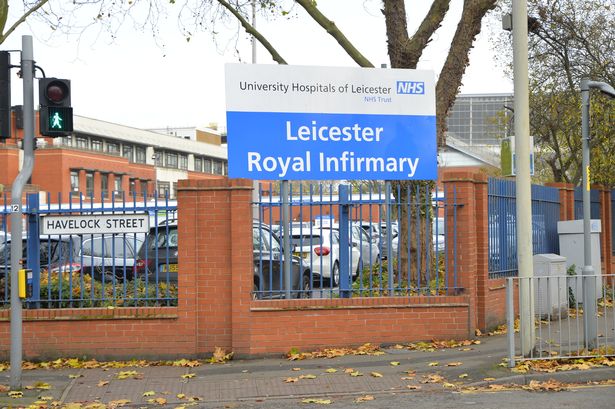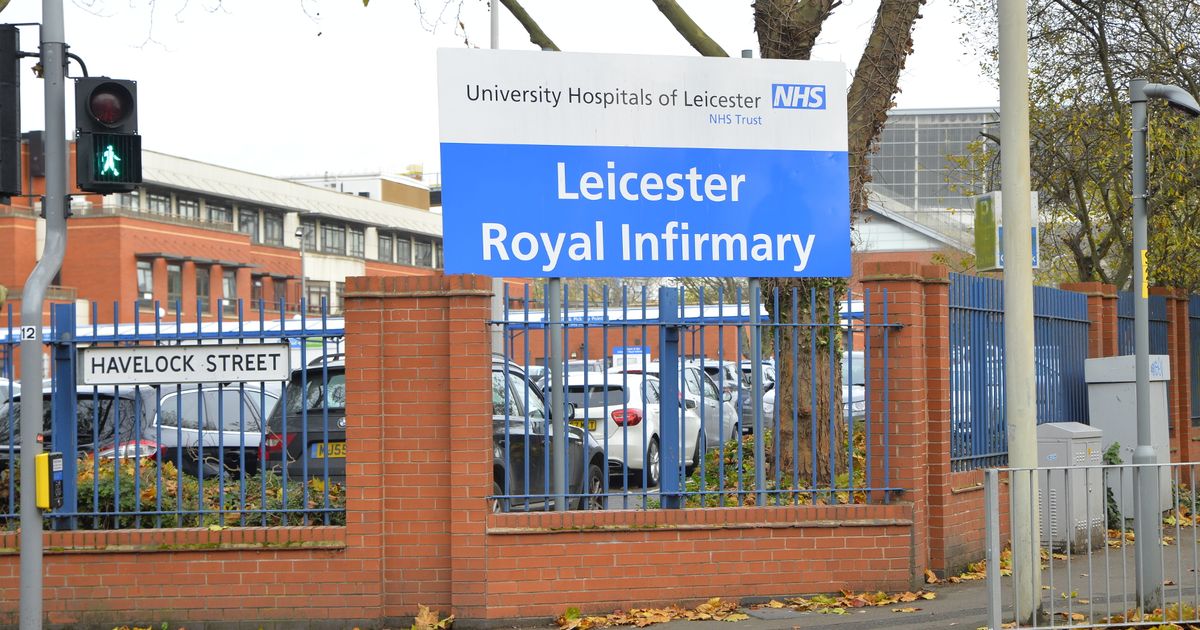He was taken to hospital three times in two days LRI, Leicester Royal Infirmary main pedestrian entrance.(Image: Leicester Mercury / Chris Gordon)
LRI, Leicester Royal Infirmary main pedestrian entrance.(Image: Leicester Mercury / Chris Gordon)
A previously healthy four-year-old Leicester boy died from a bacterial infection just three days after developing a cough, an inquest has heard. Samar Raj Singh was taken to hospital three times in two days before he died on December 12, 2022, during a national outbreak that killed at least 16 children.
Samar was a pupil at Wakerley Primary School and the beloved child of Parminder Singh and Gurmanjot Kaur, the inquest was told. “He was a child who filled every room with his smile. He had a vibrant, cheeky personality that brought joy, laughter and warmth to everyone around him,” the inquest heard.
Samar had never been unwell before, the inquest was told. His parents kept him off school on Friday, December 9, 2022, when he developed a cough, and, over the following days, his temperature reached 40 degrees with stomach pain and vomiting, the coroner was told.
His parents took him to the children’s emergency department at Leicester Royal Infirmary on Sunday, December 11, arriving at 11.50am. He was assessed and diagnosed with an upper respiratory tract infection and discharged home with safety advice, the inquest heard.
The family returned to the hospital that evening at 8pm as Samar remained unwell with a high temperature. Samar’s mother expressed concerns about scarlet fever and Strep A infection, but at that time there were no physiological signs that would indicate this, the inquest was told. The hospital was extremely busy and the family were told the waiting time to be seen by a doctor had escalated to 10.5 hours, with Samar being taken home at 10.53pm.
The next morning, December 12, Samar’s condition worsened and his rash became pronounced and felt like sandpaper. His mother tried multiple times to get through to the GP surgery, but the surgery’s receptionists do not start answering the phone until 8am, the inquest heard. Before that time callers hear a message telling them of the surgery opening hours and that if they are concerned they should call 111 or in an emergency 999, the coroner was told.
She eventually went to the surgery in person and showed photographs of Samar’s rash to the receptionist, the inquest heard. When nurse Louise Bowie saw Samar at 11.15am she was immediately concerned and called Dr Johal, who suspected sepsis and called 999 for an urgent ambulance.
The ambulance service was experiencing a very busy period and categorised Samar as a Category 2 case with a four-hour wait, the inquest was told. The call was later escalated to more urgent, but by that time Samar’s parents had decided to drive him to hospital themselves on the urging of Dr Johal, the coroner heard.
They arrived at Leicester Royal Infirmary at 12.03pm and Samar was quickly assessed with a paediatric observation score of 8. He was moved to a high dependency bay within the emergency department and within 13 minutes was assessed by a children’s registrar, the inquest was told.
A chest X-ray showed abnormalities in the right and middle lobes of the lung, along with a large collection of fluid on the right side of the chest. The inquest heard this was diagnosed as empyema. While referrals were being made to obtain a paediatric surgeon to drain the fluid, Samar collapsed and cardiac resuscitation was started. Seventeen clinicians worked on Samar to try and resuscitate him for 45 minutes but he could not be saved, the coroner was told.
It was accepted that there was a mistake during the resuscitation in that drugs were calculated for a weight of 18kg when Samar had been weighed earlier at 26kg, the inquest heard. However, the treating doctors and Dr Fitzsimmons said this had no effect on the outcome as Samar had been given so many drugs to try and resuscitate him that this was not relevant, the coroner was told.
Samar was declared dead at 3.55pm on Monday, December 12, 2022, at Leicester Royal Infirmary.
Dr Fitzsimmons, an independent expert witness, concluded there were no breaches of duty in the standard of care provided to Samar on his two admissions on Sunday, December 11 and none on his admission on December 12. The inquest heard that Samar’s FeverPAIN score was 2 at his first hospital attendance, and the threshold for giving antibiotics had been lowered to 3 during the increase in Strep A infections, the coroner was told.
Antibiotics were not indicated at his earlier hospital attendances based on this score and his clinical presentation, and even if antibiotics had been given on the morning of December 12, they would not have been in his system long enough to affect the outcome, the inquest heard.
A jury at the inquest, held between Monday, September 29 and Thursday, October 2, officially concluded Samar died from natural causes with the cause of death was recorded as sepsis due to invasive group A streptococcal infection.
According to the NHS, sepsis occurs when your immune system overreacts to an infection, and it can damage the body’s tissues and impair blood flow. Symptoms of sepsis in a baby or young child can include blue, grey, pale or blotchy skin, difficulty breathing or being sleepier than normal, according to the NHS.
Strep A infections are more common in children, but adults can also sometimes get them. Most Strep A infections are not serious and can be treated with antibiotics, but the infection can rarely cause serious problems, which is called invasive group A strep.
There were 22 cases of scarlet fever in Leicestershire in the first week of December 2022, with cases nationally 20 times higher than two years previously. At least 16 children nationally died from invasive Strep A that year.
It can be difficult to tell when a child is seriously ill, but the main thing is to trust your instincts, according to the NHS.

